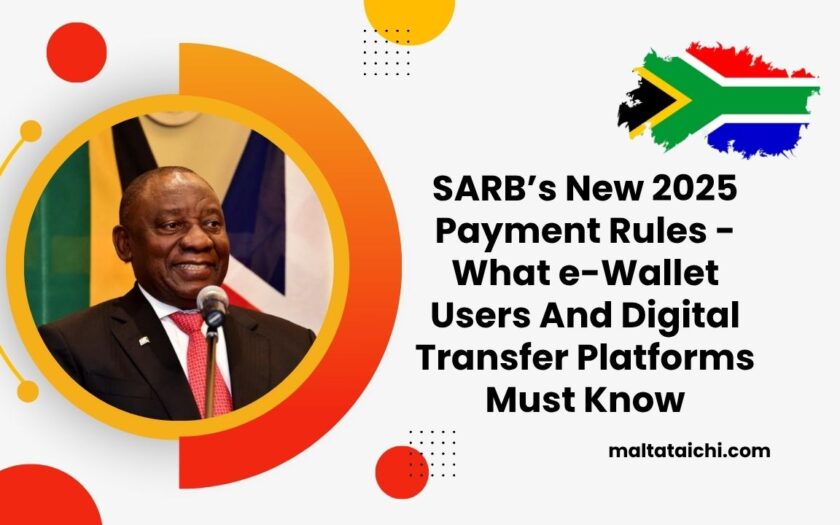In 2025, the South African Reserve Bank (SARB) is introducing new regulations that will reshape how money is moved digitally across the country. These changes are designed to make the National Payment System more secure, modern, and in sync with global standards.
But they come with major implications—especially for e-wallet users, mobile money providers, and digital transfer platforms.
With the release of two important policy drafts, SARB is laying the groundwork for a more controlled digital payment environment. If you operate or use non-bank payment services, here’s everything you need to know about the upcoming shift.
What Are the New 2025 SARB Proposals?
SARB has introduced two draft regulations that act as temporary guidelines until formal legislation is updated:
- Draft Payment Activities Exemption Notice
- Draft Directive on Specific Payment Activities
These documents aim to classify and regulate activities performed by non-bank entities such as e-wallet services, peer-to-peer apps, and digital remittance platforms—many of which have previously operated outside traditional banking oversight.
Who Is Affected by These New Rules?
These proposals expand regulatory reach beyond traditional banks. Affected businesses and service providers include:
- Digital wallet services
- Mobile money platforms
- Peer-to-peer (P2P) payment apps
- Online payment processors
- Remittance services
Under the new definitions, even storing funds for later use in a mobile app could now be considered a regulated payment activity—meaning more businesses may need to apply for licensing or exemptions.
Overview of SARB’s 2025 Draft Rules
| Regulatory Item | Key Impact |
|---|---|
| Payment Activities Exemption Notice | Allows non-bank firms to operate without full banking license if compliant |
| Directive on Specific Payment Acts | Imposes operational, reporting, and security standards on digital platforms |
| Capital & Licensing Requirements | Firms must prove financial strength and compliance |
| Client Fund Safeguards | Mandatory separation of customer funds from company accounts |
| AML & Fit-and-Proper Rules | Key persons must meet credibility, integrity, and risk management criteria |
What Are Now Considered ‘Payment Activities’?
SARB has expanded the scope of what counts as a payment activity. Here’s a list of services now falling under this category:
- Acquiring payment transactions – handling merchant payments
- Issuing electronic money – stored value in digital wallets
- Providing payment accounts – user accounts with stored funds
- Faster/instant payments – real-time fund transfers
- Issuing payment instruments – cards, payment apps, and digital tools
- Money remittance – sending money domestically or internationally
- Clearing and settlement services – processing transactions
- Third-party payments – accepting and distributing payments on behalf of others
- Managing or joining payment schemes – running or participating in digital payment networks
This broad definition means even small fintech startups and tech apps may need to register and comply.
Why These Changes Matter
The goal is to standardize digital payment operations, reduce fraud, and ensure financial integrity. But for businesses, the real takeaway is this:
- You may no longer be exempt just because you’re not a bank
- To continue operations, you might need to apply for a formal exemption
- Failing to comply could lead to penalties, suspension, or even shutdowns
For users, this ensures greater protection of funds, better data security, and more reliable digital services.
What Happens Next?
- SARB is expected to finalize the regulatory framework in late 2025
- Feedback from the financial and tech industries is being reviewed
- Further compliance updates and timelines may be announced shortly
- Affected companies should begin internal audits and legal reviews now
Even though these are still draft rules, action is required immediately to avoid business disruptions when they come into full force.
The 2025 SARB payment regulations signal a powerful move toward modernizing South Africa’s digital economy. With the rapid growth of e-wallets and cashless payments, these rules aim to balance innovation with protection.
Whether you’re a fintech operator or a frequent mobile wallet user, now is the time to prepare. The future of money movement in South Africa will be faster, safer—and much more regulated.
FAQs
Do e-wallet services need a banking license now?
Not necessarily. If they comply with the Exemption Notice and don’t accept deposits in the traditional sense, they may continue without a banking license—subject to SARB approval.
What are the new compliance requirements?
Platforms must meet stricter rules around capital reserves, risk management, data security, governance, and AML procedures.
Will users be affected?
Indirectly, yes. While the rules target businesses, users can expect better fund protection, transparency, and safer payment systems as a result.
